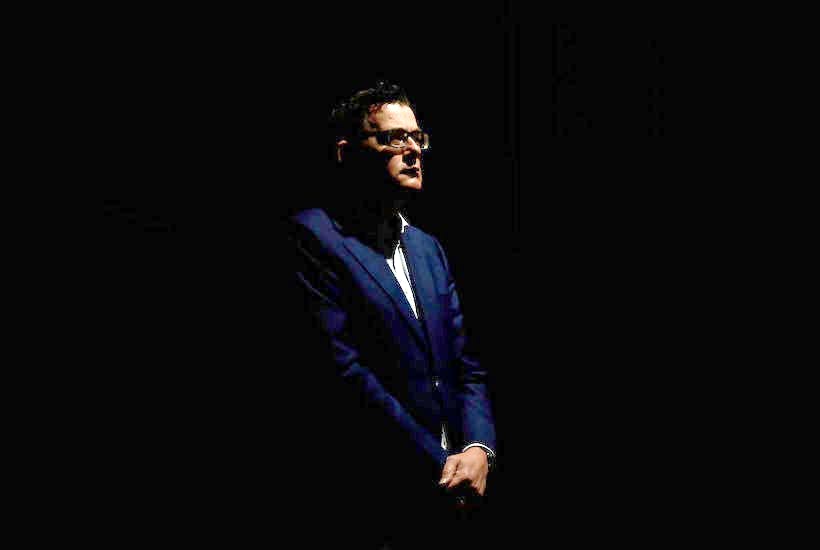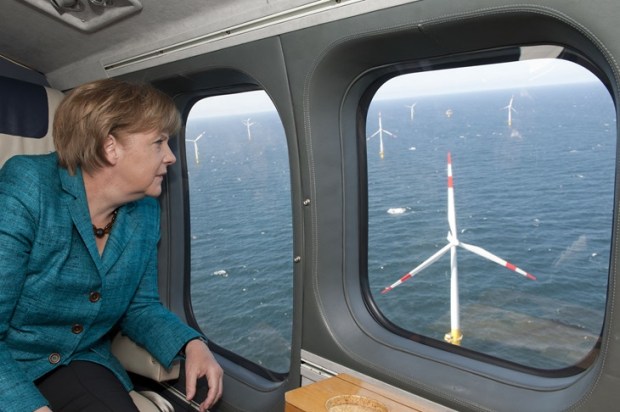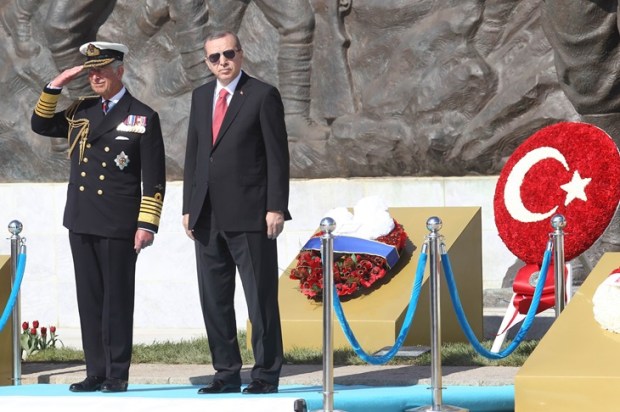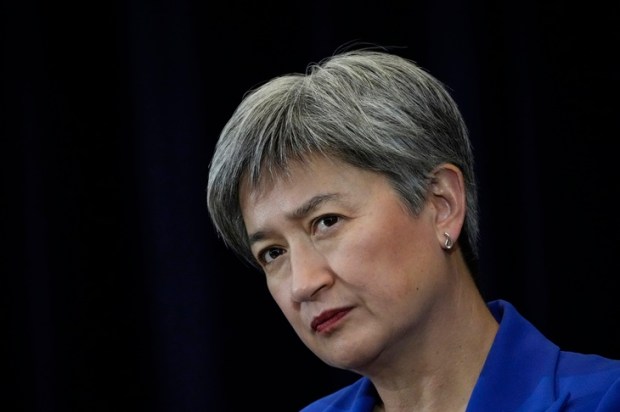Speculation has now commenced as to the future leadership of Premier Daniel Andrews given his slow progress in recovering from an unfortunate fall. His Pravda, The Age, has reported on just who might succeed him not just once, but twice in just a few days
We have become used to referring to him as Chairman Dan and pitying the long-suffering residents (whether they know they are long-suffering or not) of Danandrewstan. Some might regard that as tongue-in-the-cheek hyperbole. But it is not so.
We all know of the convincing Xi Jinping impression Andrews did in responding to the Wuhan Flu and stage managing the judicial exoneration of his own incompetence. We know of his hubris in signing up to the Chinese Belt and Roads Debt Trap Agreement despite the strong recommendations from Australia’s security services that he not do so. We know of his social engineering in the field of transgender activism. The list goes on.
But this development has prompted a reflection on what might be the final piece in the jigsaw of the Chairman’s legacy.
The latest evidence of his contempt for democracy comes courtesy, and almost exclusively, of Rowan Dean and the Outsiders panel. The Victorian government recently passed legislation to enshrine a permanent ban on fracking in the Victorian Constitution.
To be clear, the ban on fracking, while it might currently have bipartisan support in Victoria has absolutely nothing to do with good governance. To enshrine a policy position in the Constitution – to put it effectively beyond the reach of any subsequent government – is frighteningly redolent of Putin and Xi Jinping rewriting the rules to give themselves unlimited tenure.
In my view, this is a staggering development and is almost unbelievable. Not that Andrews pulled this stunt – that is all too entirely believable – but that a supposedly Liberal opposition could go along with it is, or should be, beyond belief. Amazingly, that is what happened. Amendments to the Constitution require a three-fifths majority in both Houses. This Andrews was able to achieve. The useless Victorian Liberals under the leadership of the hapless Michael O’Brien just folded, abandoning principle for political expediency. The only opposition to the Bill was mounted by Liberal Democrats, David Limbrick and Tim Quilty.
Andrews may not achieve personal Xi Jinping-like immortality but he’s making damn sure his policy platform will survive him. And this from a man whose first act as Premier was to tear up a major construction contract signed by his predecessor and paid out millions in compensation to do so.
The Australian Constitution is an elegant thing. It is contained within 48 pages of a small booklet produced by the Australian government, is couched in plain English rather than legalese and is, correctly, concerned only with the good governance of Australia. It can only be altered by referendum.
The Victorian Constitution, on the other hand, is a cumbersome Act of the Victorian Parliament requiring some 238 pages of legalese and covering a range of administrative issues, that would normally be subject to an Act of their own, or a regulation. For example, it devotes 12 pages to the matter of the Governor’s pension and 30 odd pages to judges’ pensions.
There are provisions in the Victorian Constitution that are protected by the requirement for a referendum. These cover, inter alia, Parliamentary representation, the judiciary and appropriation matters. But everything else is fair game, not just amending existing provisions, but adding new ones.
And this brings me to the proposed Aboriginal Treaty in Victoria.
In 2018, the Victorian government announced that it would negotiate a treaty with Indigenous peoples. The groundwork for this Treaty will be undertaken under the aegis is the Advancing the Treaty Process with Aboriginal Victorians Act 2018. J.D. Morecambe recently examined the financial implications of this Act in these pages. I would like to look at the possible political ramifications.
The Act established the First People’s Assembly – a body comprising 21 elected members and 11 members appointed by traditional owner groups – whose function, according to the Act is:
[T]o represent the diversity of traditional owners and Aboriginal Victorians in working with the State to establish by agreement elements necessary to support future treaty negotiations.
That seems a pretty limited remit to me so I can’t help feeling that the Assembly is getting rather ahead of itself, if this extract from its first Annual Report to Parliament is anything to go by:
The report signals more clearly than ever the new relationship between Aboriginal people and the Parliament of Victoria. Traditional Owners of Victoria have never before engaged with Parliament on equal terms. The Assembly is Parliament’s sovereign equal, comprising democratically elected Members who have been honoured with the responsibility of representing and advocating for Traditional Owners, and the broader Victorian Aboriginal community.
And this little gem from the same document:
Looking ahead
Doing business the Aboriginal way
This is an historic journey, and all Victorians are walking it together. The Assembly, comprising Traditional Owners elected from every part of this state, recognised by law as equal to government, is ready for negotiations to establish a system for Treaties. Through the process of negotiation we will assert our sovereignty and our inherent rights, including our right to self-determination. This will be an Aboriginal-led process, however Treaties will not be a success without the commitment of both the Government and the Parliament of Victoria. Treaty is a bold concept, but bold concepts are necessary to undo centuries of entrenched disadvantage.
I have the distinct impression that the Assembly sees itself a permanent fixture. It will undoubtedly morph into a Voice to the Victorian Parliament, even if a treaty doesn’t eventuate.
The Act identifies parties to the treaty process as:
(a) the Aboriginal Representative Body;
(b) the State;
(c) the Treaty Authority;
(d) any person, group or body participating in future treaty negotiations.
Notably absent from this list, indeed not mentioned at all anywhere in the Act, are the non-Indigenous people of Victoria. Conceivably, they could be included in category (d) if someone were aware and committed enough to establish a lobby group to represent the interests and views of the majority of Victorians. But I doubt that they would be allowed anywhere near the negotiating table. Presumably, Chairman Dan believes he is the people.
But what of the Treaty itself? What is it intended to achieve? Well, the Act tells us:
The contents of a future treaty or treaties are yet unknown. A future treaty or treaties can help heal the wounds of the past, provide recognition for historic wrongs, address ongoing injustices, support reconciliation and promote the fundamental human rights of Aboriginal peoples, including the right to self-determination. A future treaty or treaties should enhance the existing laws of this State, acknowledge the importance of culture to Aboriginal identity, bring pride to all Victorians and have positive impacts for all of Victorian society. The State is committed to working with Aboriginal Victorians to negotiate a treaty or treaties on terms that will help tangibly improve their lives, and the lives of future generations.
The injustices of the past cannot be undone. The State is pursuing treaty because it is the right thing to do. Victoria needs a treaty or treaties that are reciprocal, and that through truth and justice provide far reaching benefits for Aboriginal Victorians. For traditional owners, Aboriginal children, elders, and stolen people; for a society that all Victorians can all be proud of; treaty will be for all Aboriginal Victorians. In the spirit of reconciliation, treaty will be for all Victorians.
So it seems that Aboriginals have carte blanche to develop a wish list of whatever they want while the best outcome ordinary Victorians can hope for is a warm glow.
The Assembly’s first demands include establishment of a Truth Telling Commission and a Stolen Generations Redress Scheme, both of which the government has apparently agreed. So ‘negotiations’ are obviously going well, then. A Truth Commission eh? Hopefully, Professor Bruce Pascoe, that paragon of truth-telling, can find time out from his many media appearances to lend a hand.
Underpinning, the entire process – running through the entire discussion – is the idea that it will lead to Aboriginal self-determination. But what does self-determination mean? It can best be summed up in three articles of the UN Declaration on the Rights of Indigenous Peoples:
Article 3
Indigenous peoples have the right of self-determination. By virtue of that right they freely determine their political status and freely pursue their economic, social and cultural development.
Article 4
Indigenous peoples, in exercising their right to self-determination, have the right to autonomy or self-government in matters relating to their internal and local affairs, as well as ways and means for financing their autonomous functions.
Article 5
Indigenous peoples have the right to maintain and strengthen their distinct political, legal, economic, social and cultural institutions, while retaining their rights to participate fully, if they so choose, in the political, economic, social and cultural life of the State.
Article 5 is the clincher, the ‘have your cake and eat it’ clause that all oppressed minority groups need if they are to exercise real self-determination.
Moreover, Article 19 of the Declaration states:
States shall consult and cooperate in good faith with the indigenous peoples concerned through their own representative institutions in order to obtain their free, prior and informed consent before adopting and implementing legislative or administrative measures that may affect them.
What we have here in this First People’s Assembly is an Aboriginal polity that did not exist in 1788 claiming a sovereignty that did not exist in 1788.
This process that the Victorian government has initiated and the Indigenous activists have embraced, owes nothing to Aboriginal culture. It is a product of the very colonization that these people so despise but without which not one of the 33 members of the First Nations Assembly, judging by their photographs, would exist.
Inasmuch as Aborigines wish to retain their cultural identity there is absolutely no impediment to this, providing that those elements of culture that offend against current norms are jettisoned. That is, ceremonial and artistic aspects of culture, as well as familial obligations, are fully protected under Australian law.
Rather than being on the verge of extinction, what remains of traditional Aboriginal culture is remorselessly thrust down the throats of the rest of us. Their flag flies on every public building. We regularly acknowledge Traditional Owners and are frequently ‘welcomed to Country’. We enjoy ‘You’re the Voice’ in ‘Language’ at New Year’s Eve fireworks. We have indigenous football rounds. We have NAIDOC, Reconciliation Week, National Sorry Day and so on.
A government that is prepared to so corrupt its Constitution in order to shore up its political legacy, a government that is so convinced of the moral superiority of its ideology, will not hesitate to sign a Treaty giving a subset of its citizens rights that are not available to the majority and it will have no hesitation in enshrining it into the Constitution, where, on present form, the pusillanimous LINOs that occupy the opposition benches will benignly wave it through. Inevitably, the list of negotiating points will include be a demand for reserved seats in the Victorian Parliament. That is something that even the LINOs might baulk at – at least I like to think so – but this could be achieved effectively by also enshrining the First Peoples Assembly in the Constitution, where it will effectively become a third chamber of the Victorian Parliament, exercising its right of veto, a la Section 19 of the UN Declaration, over any legislation that they deem affects them.
With the precedent set by this Constitutional fracking ban, you would have to be very sanguine to dismiss these concerns lightly.
Got something to add? Join the discussion and comment below.
Get 10 issues for just $10
Subscribe to The Spectator Australia today for the next 10 magazine issues, plus full online access, for just $10.


























Comments
Don't miss out
Join the conversation with other Spectator Australia readers. Subscribe to leave a comment.
SUBSCRIBEAlready a subscriber? Log in